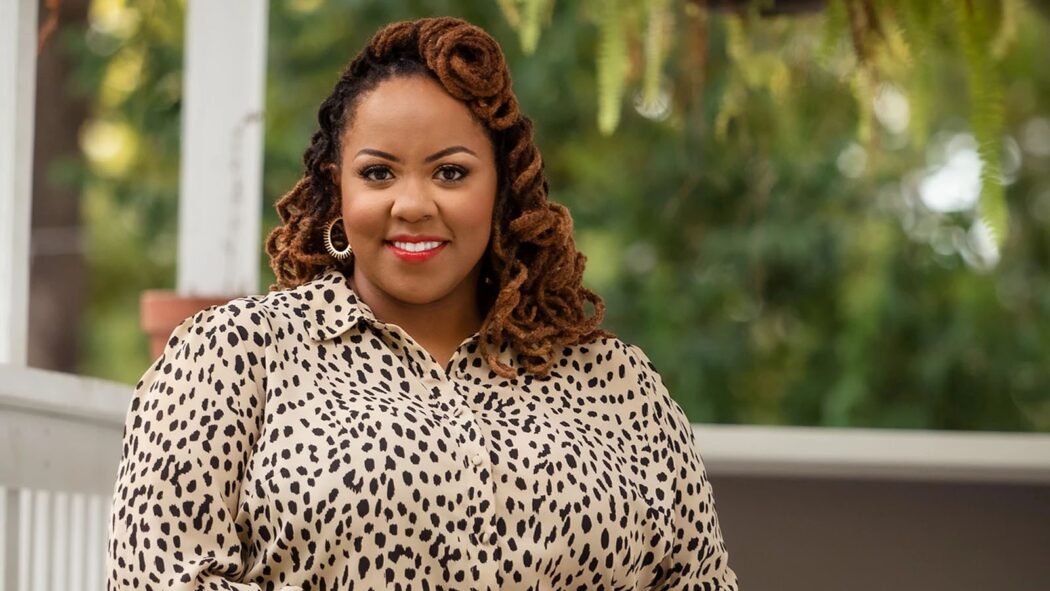Dr. Della Mosley hosts anti-Black racism webinar
A therapist and advocate for Black wellness, Della Mosley, Ph.D., visited Utah State University on April 11, hosting a virtual colloquium and workshop to address anti-Black racism.
The psychology department at USU hosts monthly colloquiums within the department but decided to invite all of USU to attend Mosley’s presentation.
Melanie Domenech Rodriguez, a psychology professor and the chair of USU’s Faculty Diversity Development and Equity Committee, spoke about why they invited Mosley to speak at the colloquium.
“We knew about the quality of her scholarship and also her ability to be an effective educator, so it was really exciting to think that we might be able to bring her to USU,” Rodriquez said. “She is incredibly skilled at engaging people and inviting everybody to think about things deeply from where they’re at.”
Mosley has hosted counseling workshops, given speeches to universities and created programs to facilitate Black wellness and help heal racial trauma.
At the event, Mosley provided an intimate workshop for students of color to talk together and practice radical healing.
The colloquium took place earlier that day and presented a model to help efforts to prevent and resist racial trauma.
Mosley started by quoting Charlene Carruthers’ book “Unapologetic” saying anti-Black racism is “the system of beliefs and practices that destroy, erode and limit the humanity of Black people.”
She then went on to explain the three different types of racism towards Black people — institutionalized, personally-mediated and internalized — as stated in Camara Jones’ article, “Levels of racism: a theoretic framework and a gardener’s tale,” published in the American Journal of Public Health.
According to the article, institutionalized racism includes a variety of access to quality education, sound housing, gainful employment, appropriate medical facilities and a clean environment.
She also makes note that institutionalized racism is the cause of the association between socioeconomic status and race in America.
The article also defined personally-mediated racism as prejudice and discrimination, while defining prejudice as differential assumptions about the abilities, motives and intentions of others according to their race.
Examples of personally-mediated racism include lack of respect, suspicion and dehumanization towards Black people.
Lastly, Mosley defined internalized racism as “acceptance by members of the stigmatized races of negative messages about their own abilities and intrinsic worth.”
Internalized racism places barriers to success for many people of color, keeping them from achieving their goals and maintaining a positive self-image.
In a scholarly article written by Mosley, she goes even deeper to present these three kinds of anti-Black racism and presented a model on how to react to them, including witnessing, processing and acting critically.
People who witness racism often experience racial trauma, a wide range of psychological and social outcomes such as feelings of anxiety and shame, paranoia and having relationships weakened or severed.
Processing this includes becoming aware and understanding what it is to understand oneself and find ways to cope.
Lastly in the article, Mosley stated that acting critically against anti-Black racism includes practicing context-specific, systemic and intersectional approaches.
Rodriguez provided links to Mosley’s scholarship for anyone interested in learning more. You can access this scholarship at osf.io/tc4pw
“My hope is that people wouldn’t just attend the talk but take the opportunity to engage in self-guided exploration, so I provided the resources that would create the conditions for people to be able to engage with that interest easily if they were interested in it,” Rodriguez said.
-Ryker.Eggenberger@usu.edu
Featured photo from: Utah State Today

